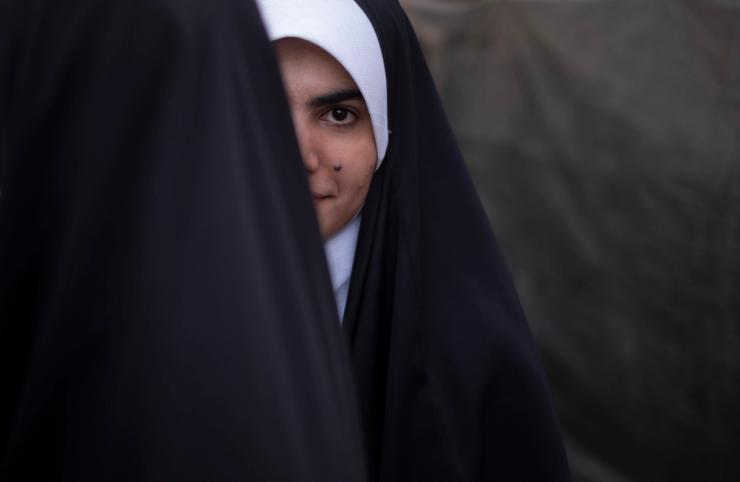The News
Iran’s morality police will resume patrolling the streets again with a new campaign to enforce hijab rules, 10 months after they had largely pulled back over mass protests sparked by the death of 22-year-old Mahsa Amini in the police’s custody.
Many women had stopped wearing the hijab in defiance, but on Sunday, the regime’s officials announced that anyone who insisted on “breaking social norms and wear[ing] clothes that are out of the norm” will be confronted “legally.”
After months of rarely being seen, morality police forces were once again spotted patrolling the streets in Tehran in marked vans.
We’ve curated insightful analysis and reporting on the return of the police force and the Iranian regime’s attempt to reestablish authority.
Insights
- While rumors of the morality police being disbanded entirely were dismissed late last year, officials began announcing a series of dress code enforcement actions in April that signaled an intent to reassert their authority after protests largely died down. The new campaign appears to be part of that effort, according to Sanam Vakil of the London-based think tank Chatham House. A debate inside Iran’s government on how to respond to the protests “vacillated between making concessions on the one hand or doubling down to reinforce their authority,” Vakil said. The fact that the morality police has returned “is a clear indication that the starker approach has won out.” — The Washington Post
- However, one Iranian expert argued that claims of the regime abandoning the morality police and easing its hijab rules were “based on misreporting and regime propaganda.” The regime has not eased its hijab laws in the last 10 months, Kasra Aarabi, the Iran Programme Lead at the Tony Blair Institute, told DW News. The latest development, Aarabi said, is part of a new government campaign to further repress women, many of whom have already been subjected to poisonings and surveillance through suppressive technologies.
- The morality police has run “re-education centers” since 2019, which function as detention centers for women who have flouted the regime’s dress code. Here, detainees are given lessons on Islam and the importance of wearing a headscarf and are reportedly made to sign a pledge to abide by the state’s clothing laws before they can be released. – CNN


